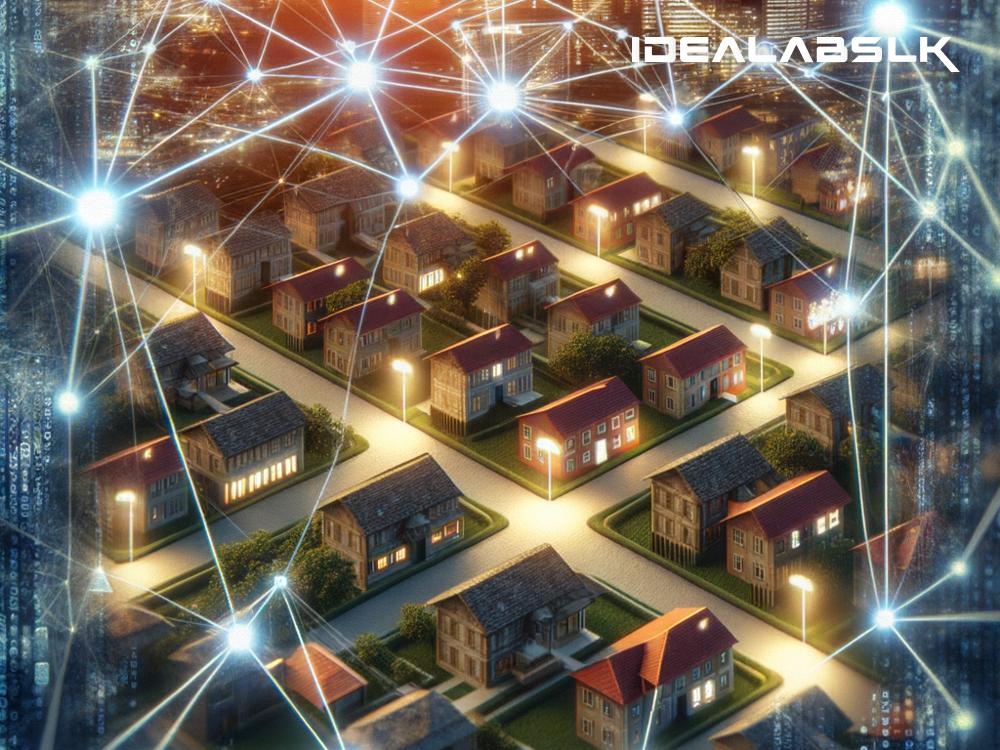Simplifying Real Estate Ownership History with Blockchain
The world of real estate is undergoing a transformative phase, thanks to revolutionary technologies. Among these, blockchain technology stands out as a beacon of change, especially in how property ownership history is managed and transferred. To understand this impact, let’s take a step back and explore what blockchain is and how it’s changing the landscape of real estate ownership.
Understanding Blockchain
At its core, blockchain is a digital ledger technology. Imagine it as a virtual book that records all transactions and ensures that this record cannot be altered retroactively. This feature brings in an unprecedented level of transparency and security to any sector it touches, including real estate.
The Conventional Real Estate Process: The Challenges
Traditionally, the process of buying or selling property is lengthy, complicated, and layered with paperwork. This is partly because establishing clear property ownership can be cumbersome. Why is that?
- Property ownership history is often a complex trail of documents, transactions, and legal records that can be centuries old.
- Fraud and clerical errors can sneak into transactions, further complicating ownership verification and trust between parties.
- Middlemen, like lawyers and real estate agents, although helpful, can add to the costs and duration of transactions.
This is where blockchain steps in, suggesting a solution to streamline and secure real estate transactions.
Blockchain: A Game-Changer for Real Estate Ownership History
Blockchain offers a transformative approach to recording and verifying real estate transactions. Let’s see how:
-
Immutable Records: Once a transaction is recorded on a blockchain, it becomes part of an unchangeable sequence of blocks. This means the ownership history of a property becomes tamper-proof and easily verifiable by any party involved.
-
Transparency and Trust: With blockchain, all parties have access to the same information which is updated in real time. This transparency builds trust among buyers, sellers, and other stakeholders, as they can see the complete ownership history of a property, including any disputes or liens against it.
-
Reduced Costs and Time: By eliminating the need for intermediaries and reducing paperwork, blockchain can drastically cut down the cost and time associated with real estate transactions. This makes the buying or selling process faster and more economical for everyone involved.
-
Tokenization: Blockchain allows for the tokenization of real estate assets, meaning property can be divided into shareable tokens. These tokens represent a part of the property, making real estate investment more accessible to a broader range of people.
Real-World Applications and Future Prospects
While the application of blockchain in real estate is still in its infancy, several projects worldwide are pioneering this technology to solve real-world problems.
- Land Registry Systems: Countries like Sweden and Georgia are experimenting with blockchain-based land registries to improve efficiency and prevent fraudulent activities.
- Tokenization Projects: Platforms are emerging that allow investors to buy tokens representing a portion of a property, making real estate investment more flexible and accessible.
These applications are just the tip of the iceberg. As technology advances, we can expect to see more innovative ways blockchain will be used to streamline real estate transactions, making the process more transparent, secure, and inclusive.
Embracing the Blockchain Era in Real Estate
The integration of blockchain into real estate is a promising development, offering solutions to longstanding challenges in the industry. However, for its full potential to be realized, it will require widespread adoption, regulatory adjustments, and continuous technological advancements.
As we move forward, it’s clear that blockchain technology has the potential to reshape the real estate landscape. By simplifying the ownership history process, it not only makes transactions more secure and transparent but also makes real estate investing more accessible to people around the globe.
The journey of blockchain in real estate is just beginning, and it’s set to revolutionize the way we think about property ownership and investment. As this technology matures, it promises a future where real estate transactions are faster, more efficient, and more reliable than ever before.
In conclusion, as the world becomes increasingly digital, embracing technologies like blockchain in sectors such as real estate can lead to a more streamlined, transparent, and equitable market. The shift towards blockchain in real estate is not just a technological update; it’s a step towards a more secure and accessible real estate market for all.

